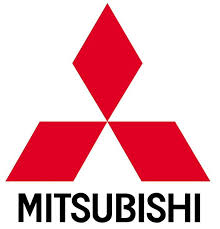Eclipse V6-3.8L (6G75) (2006)
/Page-258001.png)
Alignment: Service and Repair
Front Suspension
FRONT WHEEL ALIGNMENT CHECK AND ADJUSTMENT
Measure wheel alignment with alignment equipment on a level surface. The front suspension, steering system and tires should be serviced to normal
condition before measuring wheel alignment.
TOE-IN
Standard value: 0 ± 3 mm (0 ± 0.12 inch)
1. Adjust the toe-in by undoing the clip and jam nut, and turning the left and right tie rod turnbuckles by the same amount (in opposite directions).
NOTE: The toe will move out as the left turnbuckle is turned toward the front of the vehicle and the right turnbuckle is turned toward the rear of
the vehicle.
2. Install the clip and tighten the jam nut to the specified torque.
Tightening torque: 52 ± 2 Nm (38 ± 2 ft. lbs.)
3. Confirm that the toe-in is at the standard value.
4. Use a turning radius gauge to check that the steering angle is at the standard value.
STEERING ANGLE
Standard value:
31° 48' ± 2°00' <Inner wheel>
27° 06' <Outer wheel (reference)>
CAMBER, CASTER AND KINGPIN INCLINATION
Required Special Tool
^
MB991004: Wheel Alignment Gauge Attachment
Standard value:
Camber: 0°00' ± 30' (Left/right deviation within 30')
Caster: 3°00' ± 30' (Left/right deviation within 30')
Kingpin inclination: 12°54' ± 1°30'
NOTE: Caster are preset at the factory and cannot be adjusted.
CAUTION: Never subject the wheel bearings to the vehicle load when the drive shaft nuts are loosened.
NOTE: Attach the camber/caster/kingpin gauge to the driveshaft by using special tool MB991004. Tighten special tool MB991004 to the same torque
226 ± 29 Nm (167 ± 21 ft. lbs.) as the drive shaft nut.
